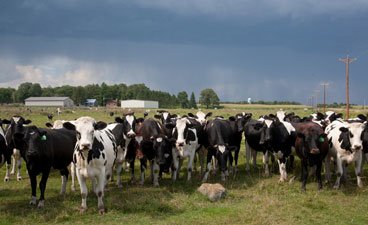
Crop, Plant and Food Development and Production
The need to feed a growing population while preserving the environment is a key concern of the field of agriculture today. In Minnesota, crop and landscape plant industries contribute to the rural and state economy. The University of Minnesota focuses on improving productivity, profitability, and environmental stewardship.
Research and Extension are committed to:
- Addressing pest and weed resistance for production, profitability, and sustainability
- Helping farmers preserve soil health and use fewer inputs
- Identifying emerging trends and supporting agriculture niche markets
- Harnessing the power of computational analytics to improve production, profitability and sustainability (i.e. G.E.M.S. Platform)
- Utilizing new techniques for breeding and genetic improvements
Research Highlights

The Minnesota Agricultural Experiment Station (MAES) at the University of Minnesota has awarded approximately $2.31 million from the Rapid Agricultural response Fund (RARF) to 10 research projects that will help protect Minnesota’s agricultural sector from current and emerging threats.
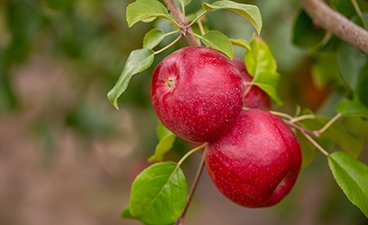
With its exceptional apple scab tolerance, delightful flavor, and ease of cultivation, Triumph is the perfect addition to any backyard or home orchard.
Triumph® apples have a pleasantly tart flavor, coupled with a well-balanced sweetness, making it great for fresh eating or adding a burst of flavor to your favorite recipes. Triumph® also boasts two genes that fight against the dreaded apple scab fungus, reducing the need for chemical sprays and making it an eco-friendly choice for organic growers and homeowners looking for lower maintenance trees.
Triumph® was released in 2021, and in the years since, licensees have grown out rootstocks and are now supplying trees to interested local garden centers. “Since Triumph® is such a new variety it may not be widely available just yet but check with your local nursery or garden center to see if they are planning to carry it,” explains Bedford. “Be sure to let them know that you’re interested in growing a Triumph® tree.”
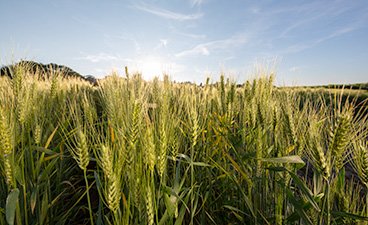
The Minnesota Agricultural Experiment Station (MAES) and the College of Food, Agricultural and Natural Resource Sciences (CFANS) have published the 2023 Minnesota Field Crop Trials. Visit varietytrials.umn.edu/2023 to see variety trials for 8 different Minnesota crops.
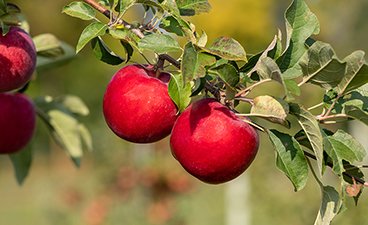
The University of Minnesota apple breeding program announces its 29th apple release: the MN33 variety, which will be sold under the brand name Kudos™.
Kudos™ is a beautiful red apple with a unique combination of traits including an excellent crisp, juicy texture and a sweet, well balanced flavor with occasional tropical overtones. It was developed by crossing the U of M hits Honeycrisp and Zestar!®, making it a sibling of the popular SweeTango® apple.
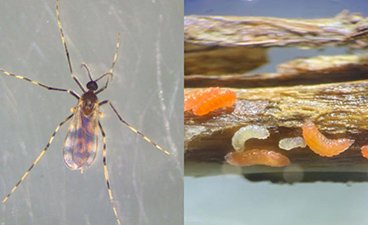
University of Minnesota students conducted crucial genome sequencing for the newly discovered soybean gall midge — a pest that is threatening the soybean crop, one of the most widely cultivated and consumed throughout the world. This small fly has been found in major soybean-producing states in the Midwest, including Minnesota, Iowa, Nebraska, South Dakota and Missouri.
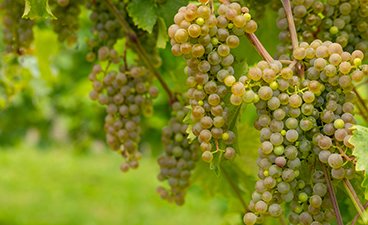
Grape growers and wine lovers take note: The University of Minnesota is releasing its sixth cold-hardy wine grape, Clarion.

The Minnesota Agricultural Experiment Station (MAES) and the College of Food, Agricultural and Natural Resource Sciences (CFANS) have published the 2022 Minnesota Field Crop Trials. Visit varietytrials.umn.edu/2022 to see variety trials for nine different Minnesota crops.
Crops included in this year’s trial include barley, canola, corn grain, corn silage, oat, soybean, spring wheat, winter rye, and winter wheat. Due to a delay in processing data, a full report for winter wheat will be available in mid-December.
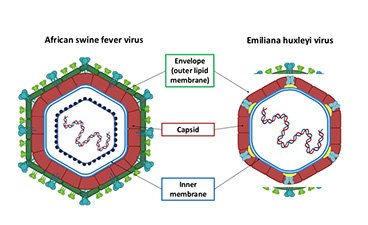
A team of researchers, led by University of Minnesota Professor Jerry Shurson, developed and validated a new surrogate virus assay for African Swine Fever virus (ASFV). This surrogate virus assay will allow researchers to better understand how ASFV survives in feed ingredients and to explore strategies to inactivate the virus and decontaminate facilities in the event of a potential ASFV contamination.
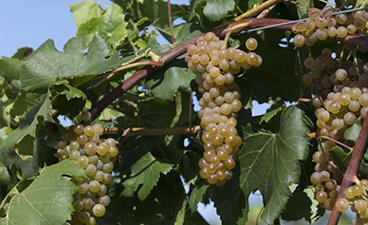
A University of Minnesota-led team of researchers received the first round of funding from a $10 million grant awarded by the U.S. Department of Agriculture (USDA) to follow up on their work with VitisGen2, a multi-disciplinary, collaborative project focused on cultivating disease-resistant grapes that can be grown sustainably with reduced pesticide and fossil fuel use.
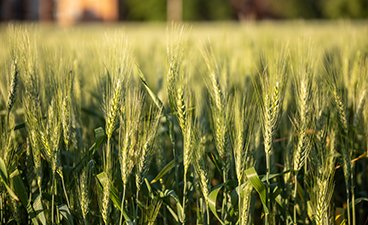
The University of Minnesota has released a new hard red spring wheat variety called ‘MN-Rothsay.’ MN-Rothsay features a good combination of yield, protein, and disease resistance and exceptional straw strength.
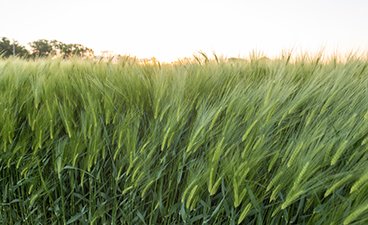
Researchers from the University of Minnesota Department of Agronomy and Plant Genetics announce the release of a new six-row winter barley variety called MN-Equinox. Available for Fall 2022 planting, MN-Equinox is facultative, meaning it can be planted in either the spring or fall, giving growers flexibility in planning their rotations and adapting to weather conditions.

The Minnesota Agricultural Experiment Station (MAES) and the College of Food, Agricultural and Natural Resource Sciences (CFANS) have published the 2021 Minnesota Field Crop Trials. Visit varietytrials.umn.edu/2021 to see variety trials for 10 different Minnesota crops.

In an effort to get yield results from the fields to growers in a more timely fashion, the Minnesota Field Crop Trials now have a dedicated website to house all variety trial information. This new website is under development to allow researchers to share yield and other key field results with producers before the full publication is released. Visit varietytrials.umn.edu

Growing North Minneapolis is a community-driven program which aims to build food, environmental, social and cognitive justice through sustainable urban growing and greening. Learning and career development are experiential and contextualized in real-world experiences related to the FEW nexus. Urban youth, predominantly of color and low socioeconomic status, are hired through a local workforce development program, and work together with UMN undergraduates and North Minneapolis community mentors to form intergenerational communities of practice.

The COVID-19 pandemic disrupted food supply chains across the U.S. It is essential for our food system to provide adequate nourishment to the people and support the livelihood of people who supply food. In response, a multidisciplinary team of researchers and Extension specialists from five universities have partnered to generate science-based knowledge and resources to enhance preparedness of the U.S. food supply chains for future disruptions.
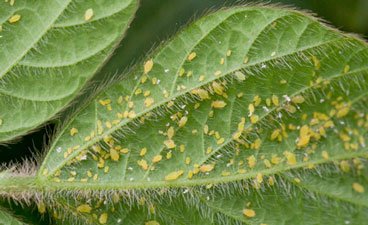
Since 2016, the Minnesota Invasive Plants and Pests Center has helped fund a team of research and Extension soybean specialists to explore two ways to help Minnesota soybean farmers deal with soybean pests--especially soybean aphids. The first is focused on developing aphid-resistance soybeans and the second is exploring the use of drone technology to help with pest scouting.
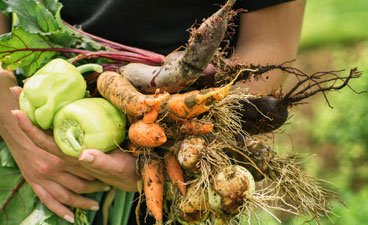
With the ultimate goal of developing more sustainable food production systems, UMN researchers explored plant-soil-microbe relationships driving soil fertility in organic systems. To do this, they developed a farmer-driven project to investigate the role summer cover crops can play in enhancement of soil nutrients and overall health when grown for short periods of time. Significantly, they partnered with a variety of immigrant farmer grower groups for on-farm studies and shared their soil health information directly with producers.

Currently, pea protein is mass produced in a way that can alter its native structure, thus reducing its functionality in food applications. In order to make pea protein competitive with soy protein, researchers at the Plant Protein Innovation Center focused on finding ways to optimize both the conditions used for pea protein extractions and for functionalization, to produce pea protein isolates (PPI) with high protein purity, preserved structural, and enhanced functional properties.

Members of the University’s Center for Genome Engineering have long led the charge in developing new, powerful genome modification technologies. The center’s work involves gene therapy, gene discovery and precision gene editing using UMN-developed TALEN® (transcription activator-like effector nucleases) and techniques such as CRISPR-Cas9. More recently a second research center, Center for Precision Plant Genomics, was added, which focuses on developing tools and technologies to aid in developing GE crops.
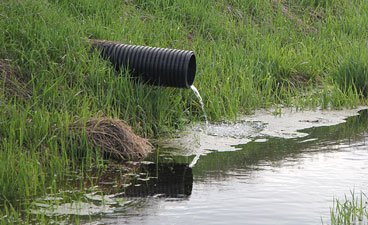
Researchers at the Southwest Research and Outreach Center in Lamberton, Minn., wanted to understand the individual and cumulative impacts of multiple, integrated best practices on water quantity and water quality in order to meet nutrient load reduction goals. In particular, researchers were interested in evaluating the response of in-field, edge-of-field and beyond-the-field/in-stream management practices on water quantity and water quality for a small watershed and upscale these results to watershed scale.

The Minnesota Agricultural Experiment Station (MAES) and the College of Food, Agricultural and Natural Resource Sciences (CFANS) have officially published the 2020 Field Crop Trials.
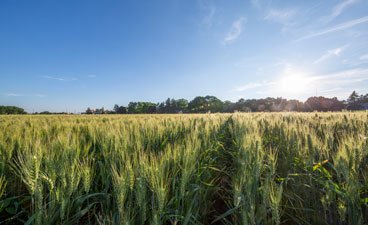
The University of Minnesota has released a new hard red spring wheat variety called ‘MN-Torgy.’ MN-Torgy features a good combination of yield, protein, straw strength and disease resistance.
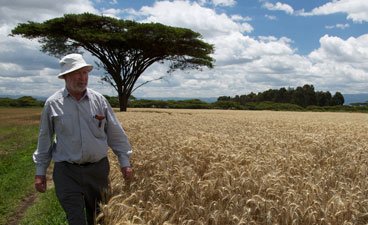
In response to the 2013 and 2014 wheat stem rust epidemics in Ethiopia, a collaborative research and education team formed to study the biology and control of new, dangerous forms of the wheat stem rust pathogen from East Africa and other parts of the world and to provide Ethiopian scientists and farmers with the tools and knowledge needed to combat wheat stem rust.
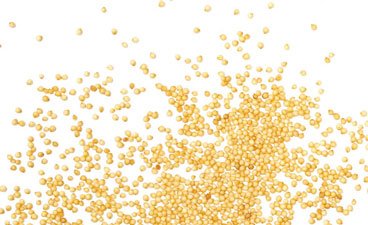
Palmer amaranth was first detected in Minnesota in 2016, but even before it hit the state, University of Minnesota researchers and Extension specialists mobilized to help state agencies and landowners develop a plan to eradicate infestations before spread to new areas.
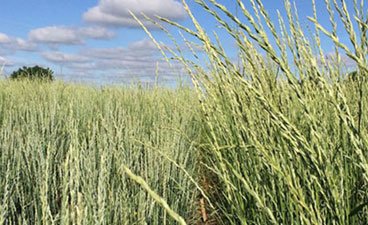
Research shows with intermediate wheatgrass (IWG), farmers get access to a more sustainable cash crop that requires fewer inputs and is proving to be an increasingly desirable grain option for the food and beverage industry. New varieties of IWG, developed with MN conditions in mind, would further assist farmers to take advantage of all of the benefits of this new crop.